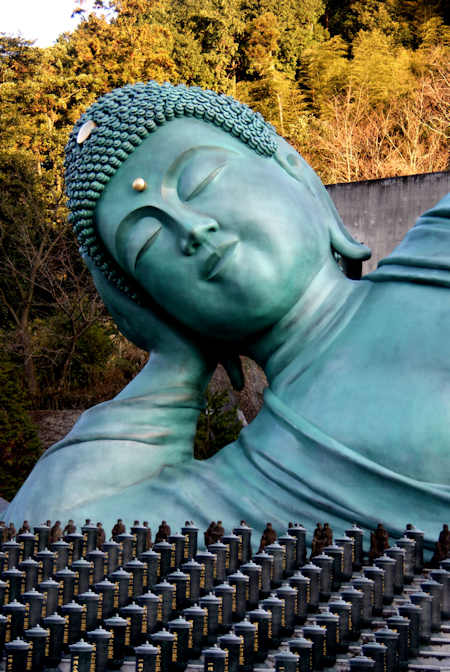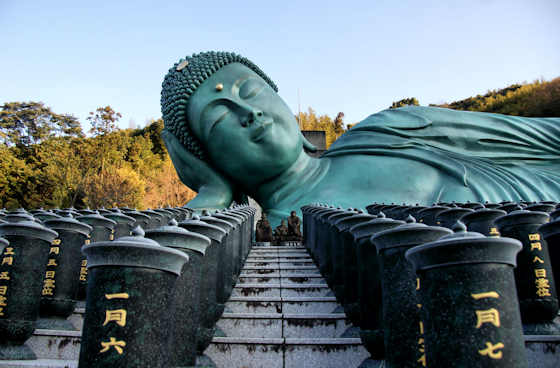Kurikara, the sword of Fudo Myoo, is often represented with a dragon wrapped around it. Occasionally Fudo himself is given a dragon head, like here at Nanzoin.
There were lots of Fudo statues at Nanzoin, as there were at the other temples nearby in the Wakasugi Mountain area. Like the other temples there was a waterfall surrounded by Fudo statues used for ascetic purification practises.
There was also a fudo altar within a cave, something else that is not unusual for Fudo altars.
As well as the numerous Fudo statues, and the largest bronze reclining Buddha, Nanzoin had a lot of other features which I will post next....










